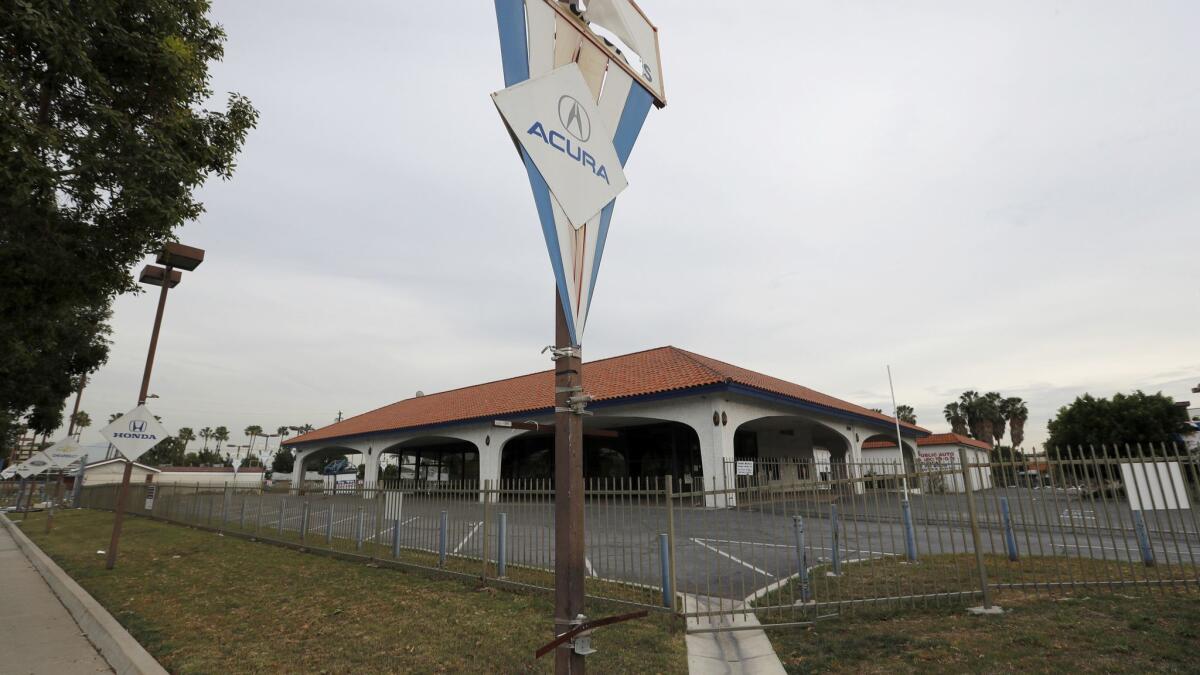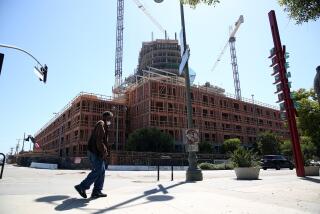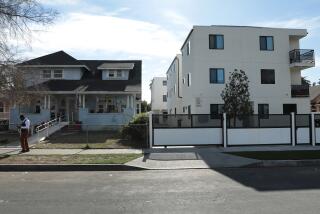Boost to affordable housing is part of new $1.3-trillion federal budget

In passing a $1.3-trillion spending package, Congress didn’t just avert a government shutdown. It also provided a boost to affordable housing developers who say their projects have been delayed — even killed — by recent tax law changes.
The reduction in corporate rates this year indirectly lowered the value of the federal Low Income Housing Tax Credit, creating havoc on an industry that relies on the program to build homes that low-income Americans can afford.
Now developers will be getting some relief after Democrats won a 12.5% boost in tax credit allocations for the next four years in exchange for fixing the “grain glitch” important to agriculture and many Republicans.
The bill was signed into law Friday by President Trump after a morning veto threat issued via Twitter that he later rescinded.
“The increase couldn’t come at a better time,” said Sen. Maria Cantwell (D-Wash.), who has been pushing to expand the credit for years. “This down payment will help us deal with the tremendous deficit we have in affordable housing.”
The affordable housing industry said the inclusion, in addition to boosts in other housing programs included in the bill, will result in more homes for low-income households. That’s a pressing need for California, which is in the midst of an affordable housing and homelessness crisis.
“We are very pleased that Congress took this step,” said Peter Lawrence, a director with Novogradac & Co., a national accounting and consulting firm that specializes in affordable housing.
But others were quick to add that the increases won’t make up for the damage inflicted by tax cuts, largely because the expansion doesn’t apply to one popular part of the tax credit program, known as the 4% credit. Randy Noel, chairman of the National Assn. of Home Builders, said the expansion “fell woefully short.”
Matt Schwartz of the California Housing Partnership estimated the 12.5% increase to the tax credit program — along with the other housing boosts — would result in around $250 million more annually for affordable housing in California. That is not enough to make up for a $500-million annual reduction created by the tax bill.
“More needs to be done after the midterm elections, which will be the next time any significant tax legislation is considered,” Schwartz wrote in an email to housing advocates and legislative staff.
Cantwell, in a statement, noted the expansion was the first in a decade and stressed that “we need to use this increase to show the return on our investment and show why we need a further increase in the Low Income Housing Tax Credit at the federal level.”
The reduction in credit value stems from how the program is set up.
Government agencies award the credits to developers, which then sell them to big banks and other investors, along with an equity share in their projects. The investors pay not only for the direct credit, but also for the right to deduct depreciation and certain expenses as owners.
But with a lower federal tax rate, those owners now don’t benefit as much from the write-offs and thus they aren’t willing to pay developers as much in order to keep rents low.
A reduction in credit value is a big hit because nearly all below-market rental properties use the program, which pays for about 20% to 70% of development costs, according to Novogradac.
To make up the difference, developers must scale back their projects, find savings elsewhere or ask for more funds from other government sources.
For many affordable housing developers, budget shortfalls started right after the 2016 election, when investors started paying less under the assumption that soon-to-be-President Trump would sign into law corporate tax cuts approved by a Republican Congress.
Experts have predicted values will drop again this year, because for much of 2017, investors expected a 25% corporate tax rate, rather than the 21% that became law.
Affordable housing developer Alexis Gevorgian said the tax credit expansion will likely help his firm, AMG & Associates, fund more projects. But he said it won’t fill a $15-million budget gap that’s opened up on two large Santa Ana developments that it is planning with the Pacific Cos.
Those projects, totaling nearly 1,000 apartments for seniors and families, rely on the portion of the credit program not seeing an expansion.
“We are very disappointed,” he said, before noting he was thankful for the increase that is coming.
Twitter: @khouriandrew
UPDATES:
2:30 p.m.: This article was updated with additional comment from Sen. Maria Cantwell (D-Wash.) and an affordable housing developer.
This article was originally published at 1:35 p.m.







